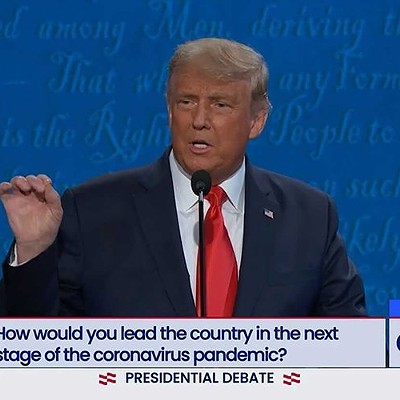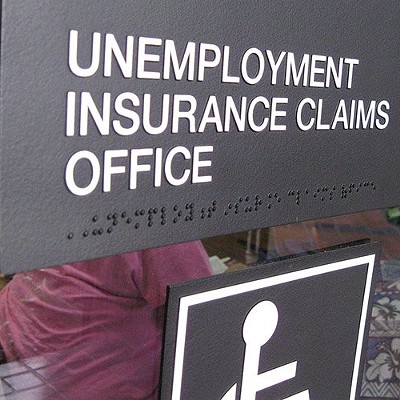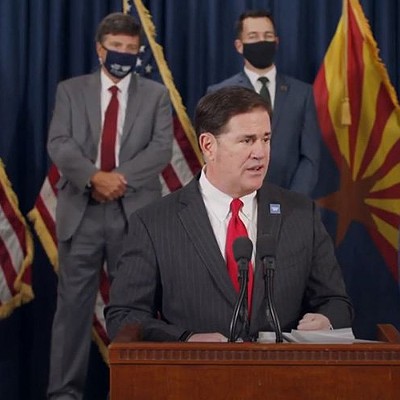Monday, July 20, 2015
Arizona's Teacher Shortage (and How To Fix It)
Another school year, another teacher shortage. This isn't a TUSD problem or a Tucson-area problem. One estimate says that Arizona has 1,000 fewer teachers than it needs. Another, which seems high to me, says that Maricopa County alone has 1,000 teacher slots to fill. Either way, it's a big, statewide problem. Emphasis on "statewide."
Why the shortage? Low pay, low funding for support and supplies, too many students in each classroom. And let's not underestimate the importance of the anti-teacher, anti-"government school" rhetoric that makes teachers feel less valued. Why go into, or stay in, a low paying, stressful job if everyone keeps telling you how much you suck? Arizona teachers are leaving the profession or moving elsewhere to teach. Fewer college students are choosing teaching as a profession.
I keep hearing from some quarters that teachers are underworked look at all those vacations they get!—so they don't deserve more pay, and the reason there are so many bad teachers is because the union won't let districts fire them. Now, I'm not an economist and I don't play one on The Range, but it seems to me there are a few basic economic flaws with both those arguments.
If teachers are underworked and overpaid, people should be lining up to get one of those cushy jobs. Districts should be fighting applicants off with a stick. That's the way the marketplace works, right? People gravitate toward the most attractive jobs. And once prospective teachers land their jobs, after they get through popping champagne corks and celebrating their unbelievable good fortune, they should hold onto those jobs until retirement forces them out the door.
So why aren't college departments of education turning away students who want to sign up? Why aren't districts getting more applications than they can handle? Why do young teachers leave the profession in such high numbers?
I can only think of two possible answers. One possibility is, people who consider teaching and reject it, or leave the profession once they get a job, are idiots. They don't know a good deal when they see it. The other possibility is, teaching is a low pay, high stress job, and unless people have the initial desire to teach, then find they get enough joy in the classroom that it balances out all the problems that go along with the job, they aren't likely to go into the profession in the first place or stay there once they land a job.
And what about all those bad teachers who stay in the classroom year after year? Why don't we get rid of tenure protections and make it easier to fire them? To do that effectively, we need people waiting in the wings to take their places. What value is there in creating more job openings by, say, weeding out the bottom five or ten percent of teachers if we can't even fill the openings we already have?
Going back to my rudimentary understanding of economics, it seems to me that the best way to get high quality teachers in the classroom is to attract lots of applicants for open jobs. The more people applying, the more choice districts will have, and the more likely they'll be able to reject the poorer prospects and hire the better ones. How do you get more and better applicants? Simple. Improve pay and working conditions. If the job is more attractive, more and better quality people will apply. Even if we don't try to cull the herd by removing the weakest teachers—and deciding who they are is more difficult than it looks—we'll end up with a stronger group of teachers. The weaker teachers will gradually fade away, leaving a well paid, well supported cadre of dedicated, capable teachers in our classrooms.
Why the shortage? Low pay, low funding for support and supplies, too many students in each classroom. And let's not underestimate the importance of the anti-teacher, anti-"government school" rhetoric that makes teachers feel less valued. Why go into, or stay in, a low paying, stressful job if everyone keeps telling you how much you suck? Arizona teachers are leaving the profession or moving elsewhere to teach. Fewer college students are choosing teaching as a profession.
I keep hearing from some quarters that teachers are underworked look at all those vacations they get!—so they don't deserve more pay, and the reason there are so many bad teachers is because the union won't let districts fire them. Now, I'm not an economist and I don't play one on The Range, but it seems to me there are a few basic economic flaws with both those arguments.
If teachers are underworked and overpaid, people should be lining up to get one of those cushy jobs. Districts should be fighting applicants off with a stick. That's the way the marketplace works, right? People gravitate toward the most attractive jobs. And once prospective teachers land their jobs, after they get through popping champagne corks and celebrating their unbelievable good fortune, they should hold onto those jobs until retirement forces them out the door.
So why aren't college departments of education turning away students who want to sign up? Why aren't districts getting more applications than they can handle? Why do young teachers leave the profession in such high numbers?
I can only think of two possible answers. One possibility is, people who consider teaching and reject it, or leave the profession once they get a job, are idiots. They don't know a good deal when they see it. The other possibility is, teaching is a low pay, high stress job, and unless people have the initial desire to teach, then find they get enough joy in the classroom that it balances out all the problems that go along with the job, they aren't likely to go into the profession in the first place or stay there once they land a job.
And what about all those bad teachers who stay in the classroom year after year? Why don't we get rid of tenure protections and make it easier to fire them? To do that effectively, we need people waiting in the wings to take their places. What value is there in creating more job openings by, say, weeding out the bottom five or ten percent of teachers if we can't even fill the openings we already have?
Going back to my rudimentary understanding of economics, it seems to me that the best way to get high quality teachers in the classroom is to attract lots of applicants for open jobs. The more people applying, the more choice districts will have, and the more likely they'll be able to reject the poorer prospects and hire the better ones. How do you get more and better applicants? Simple. Improve pay and working conditions. If the job is more attractive, more and better quality people will apply. Even if we don't try to cull the herd by removing the weakest teachers—and deciding who they are is more difficult than it looks—we'll end up with a stronger group of teachers. The weaker teachers will gradually fade away, leaving a well paid, well supported cadre of dedicated, capable teachers in our classrooms.
Tags: Arizona , Teacher shortage














